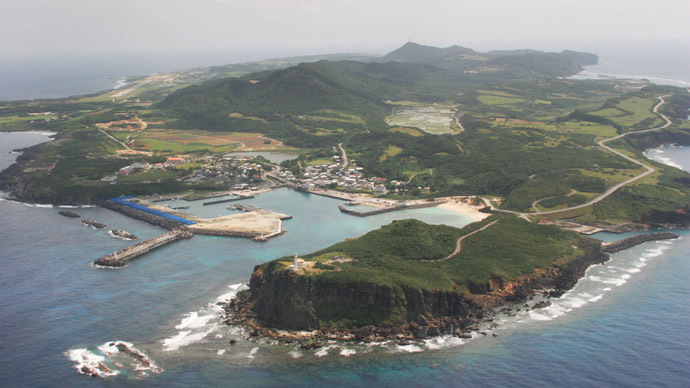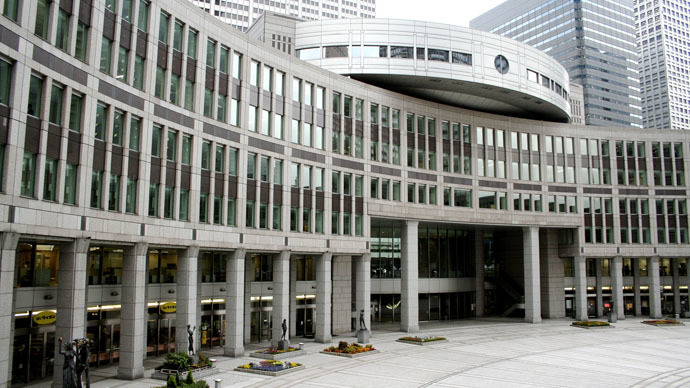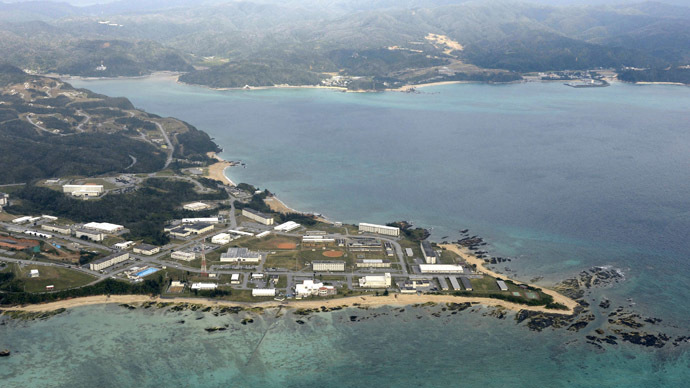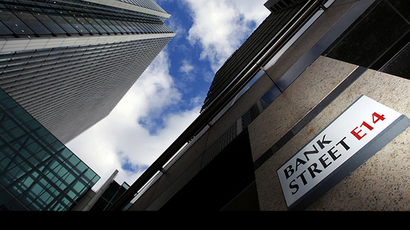‘Hai’: Okinawa pro-independence campaigners look to Scotland for inspiration

Campaigners from the southern Japanese region of Okinawa have traveled to Scotland to find inspiration in the ‘Yes’ campaign and boost support for their own independence bid.
Although Okinawa’s independence movement is much smaller than Scotland’s, local activists say a sovereign state free from economically debilitating US military bases and Tokyo subsidies provide a firm basis for self-determination.
Masaki Tomochi, a leading member of Okinawa’s independence movement and a professor of economics at Okinawa International University, will travel around Scotland in coming days alongside a journalist and a group of fellow campaigners from the chain of southern Japanese islands that make up Okinawa. The group hopes to speak with Scottish voters, academics and a number of Scottish National Party (SNP) members.
A primary purpose of the trip is to discern how the UK and wider international community will react should Scotland’s yes vote reign supreme on September 18, Tomochi says.
“Scotland has every right to be independent and to take decisions about its own future. That's what people all over the world want, including the people of Okinawa," Tomochi recently told the Guardian.
Okinawa’s pro-independence movement has posted a manifesto on its website, which mirrors that of the SNP in many ways.
Characterized by covert collusion amidst Tokyo and Washington, which began with a clandestine postwar agreement to allow the US administration to set up military bases there indefinitely, campaigners say the region’s history is one of bloodshed and sacrifice at the behest of mainland Japan.
In recent times, the deployment of MV-22 Osprey tilt-rotor aircraft in Okinawa – along with the relocation of a controversial military base – have compounded public resentment towards centralized Japanese rule. Tomochi insists a declaration of independence from the Japanese government and a reversion to sovereign rule is the only solution to these ongoing issues.

While Okinawa covers a mere 0.6 percent of Japan’s total landmass, it harbors over half the nation’s 47,000 US troops and 75 percent of its US bases. Although some Okinawans depend on the US military’s presence for employment, pro-independence campaigners argue the military bases weaken the local economy, which is currently the poorest of Japan’s 47 official territories.
Campaigners’ opposition to the American military’s presence in Okinawa centers largely on the planned relocation of Futenma - a large US marine base located in the center of a populated area - to an offshore territory on Okinawa Island’s north-eastern coast. Opinion polls indicate an overwhelming 74 percent of locals oppose the relocation, and fears the proposed offshore runway could jeopardize residents’ safety and local marine life are widespread.
Despite local opposition to the development, both Japan’s and America’s governments are determined to pursue the plan, which would render Okinawa Island a critical US military base if a conflict over the neighboring Senkaku/Diaoyu Islands’ sovereignty were to emerge with China.
A colonial question?
Prior to its annexation by Japan in 1879, the Okinawa chain of islands formed an independent kingdom known as the Ryukyus. Okinawa Island, itself, was home to one of the most brutal battles of the Asia-Pacific war, culminating in 240,000 casualties. The territory remained under the control of US authorities until 1972, after which it was returned to the Japanese government.
As they descend upon Scottish soil, Okinawan activists hope to learn how Scotland’s ‘yes’ campaign gathered such widespread momentum in the run up to the referendum. Like their Scottish allies, pro-independence residents of Okinawa have been accused of compromising the region’s economy and security.
But Okinawa’s pro-independence campaigners firmly believe the region could be a viable nation, with many local inhabitants referencing Singapore as a useful economic model. Tomochi argues Tokyo’s economic control over Okinawa Island is an extension of colonial rule, and that the Japanese government’s investment of up to $100 billion in its local economy is misleading, because much of this money is siphoned off by Japanese enterprises.

Concerns the Island may fall under the control of Chinese authorities in the event of independence are unfounded, according to Tomochi, who insists Okinawans are ethnically divergent from mainland Japanese in terms of language and culture.
"We would be far more likely to be invaded by Japan. China never invaded us for centuries when this was an independent kingdom," he says.
The evolution of Scotland’s recent independence movement illustrates how mounting frustration with a far-removed centralized government can build over time into a forceful drive for self-determination. Until the 1980s, a mere 15 percent of Scotland’s populace backed independence from Britain. Yet days from a referendum that could terminate a political union twice as old as that of Japan and Okinawa, that figure is closer to 50 percent.
This striking turnaround occurred largely because the politics that characterized the union changed. Westminster rule appeared increasingly removed from, and out of kilter with, Scotland’s interests, prompting socio-political space for nationalist ideals to develop in Scotland’s public consciousness.
Okinawa’s pro-independence movement envisions a sovereign state freed of its military burden, with a thriving economy centered on trade with China and south-east Asia. But while Scotland’s independence referendum came into being as a result of the British government’s decision to grant it, the Japanese government will not give Okinawa the same choice.














